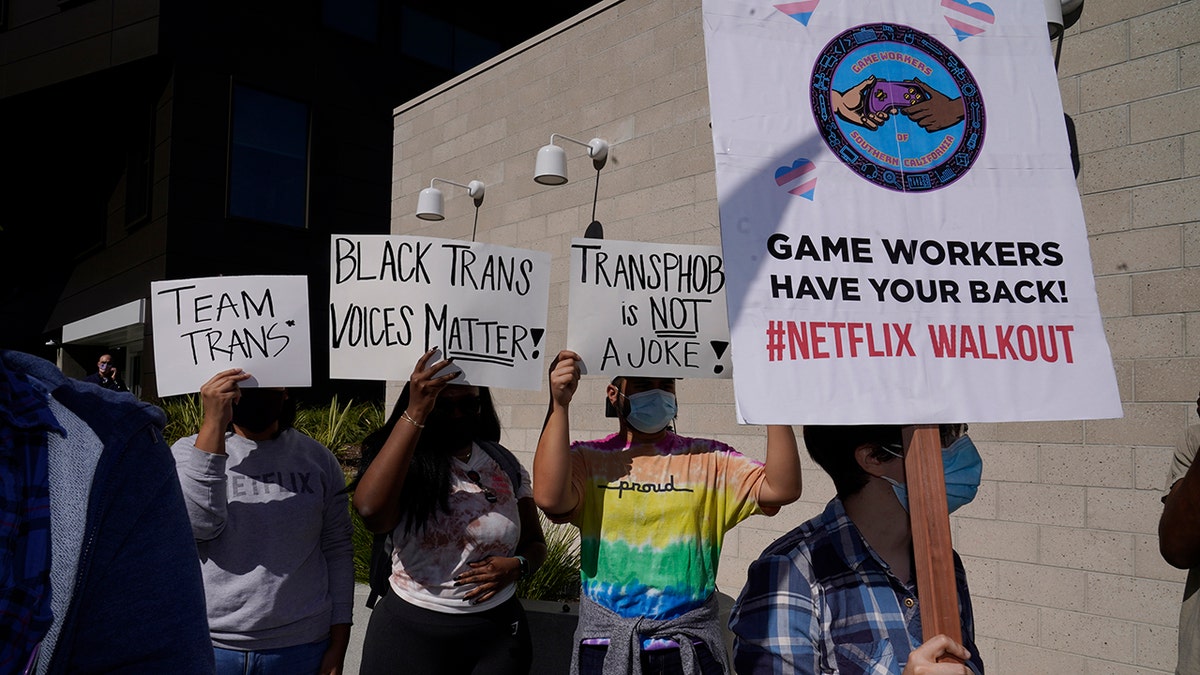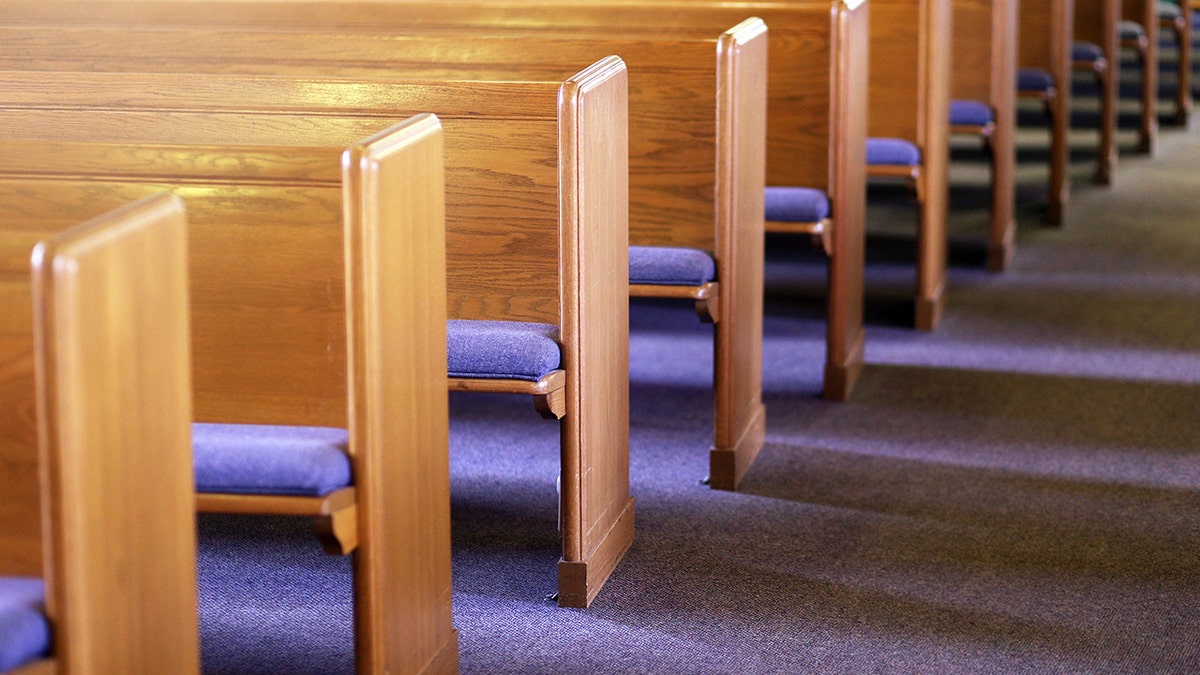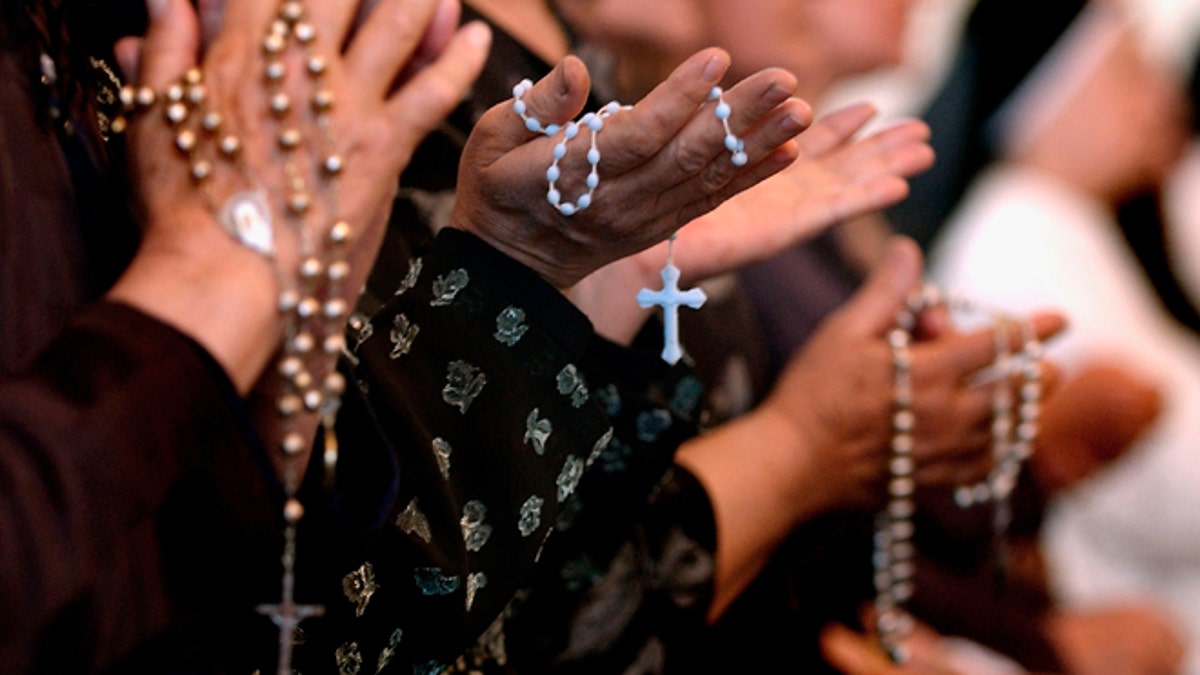Clay Travis: Democratic party is 'attempting' to be as woke as possible
OutKick founder Clay Travis and Fox News contributor Leo Terrell react to the Minneapolis Teachers Union structuring layoffs by race on 'Hannity.'
Atlantic staff writer Helen Lewis observed in an article Thursday that many modern Americans have substituted traditional religions of the past with political ideology.
"A quick question. If someone is yelling ‘repent’ at you in the street, are they more likely to be (a) a religious preacher or (b) a left-wing activist?" Lewis asked to start the piece.
She recalled examples of outraged social justice advocates and said, "We might expect that religious concepts—repentance, hellfire, heresy, apostasy—would have become less salient as a result" of an increasingly secular populace, and cautioned "But that’s not the case."
She explained, "For some activists, politics has usurped the role that religion used to play as a source of meaning and purpose in our lives, and a way to find a community."

People protest outside the Netflix building in the Hollywood section of Los Angeles, Wednesday, Oct. 20, 2021. Critics and supporters of Dave Chappelle's Netflix special and its anti-transgender comments gathered outside the company's offices Wednesday. (AP Photo/Damian Dovarganes)
VIRGINIA CATHOLIC CHURCH TARGETED WITH FIRE, GRAFFITI AFTER SCOTUS OVERTURNS ROE
The writer speculated on how "the nonreligious are younger and more liberal" than the greater population, while simultaneously being "the group most likely to be involved in high-profile social-justice blowups, particularly the type found on college campuses." As she summarized, "They’ve substituted one religion for another."
Lewis noted many parallels between religions that unite people across society and social justice orthodoxy.
"Many common social-justice phrases have echoes of a catechism: announcing your pronouns or performing a land acknowledgment shows allegiance to a common belief, reassuring a group that everyone present shares the same values," she observed. "But treating politics like a religion also makes it more emotionally volatile, more tribal (because differences of opinion become matters of good and evil) and more prone to outbreaks of moralizing and piety."
Lewis observed that as American politics and norms have changed, the tribal lines that people divide themselves along has changed as well, noting, "In countries where racial and religious intermarriage have become commonplace, dating across political lines is the new taboo. The young British writer Tomiwa Owolade told me he often saw dating profiles that insisted on ‘no conservatives.’"

Church attendance among youth has been in decline throughout much of the western world. (iStock)
BISHOP ROBERT BARRON SCHOOLS THE ATLANTIC FOR SUGGESTING THE ROSARY IS ‘AN EXTREMIST SYMBOL’
She brought up linguist and Atlantic contributing writer John McWhorter, who has spoken and written extensively about how wokeness has gone too far and become a new religion. Lewis explained, "He sees other parallels, suggesting that notions such as white privilege and male privilege are versions of original sin—a stain that humans are born with, no matter their individual circumstances. Problematic, he argues, is the new way to say heretic."
Lewis quoted a statement from Rabbi Laura Janner-Klausner explaining that traditional religious organizations ensure communities stick together despite internal strife. "[A person] may be so annoying and have different views, and you must still go to their family’s funeral," Rabbi Janner-Klausner explained. "You must still take them something when they have just given birth; you must still go to their mourning prayers."
Lewis cautioned readers that as America exchanges past religions for political tribalism, it risks going down a dark road as a nation.

(Photo by Wathiq Khuzaie/Getty Images) (2005 Getty Images)
CLICK HERE TO GET THE FOX NEWS APP
"In real life, churches, mosques, synagogues, and temples force together, in their congregations, a random assortment of people who just happen to live close to them. But today’s social activism is often mediated through the internet, where dissenting voices can easily be excluded," she warned. "We have taken religion, with its innate possibility for sectarian conflict, and fed it through a polarization machine. No wonder that today’s politics can feel like a wasteland of anguished ranting—and like we are in hell already."
